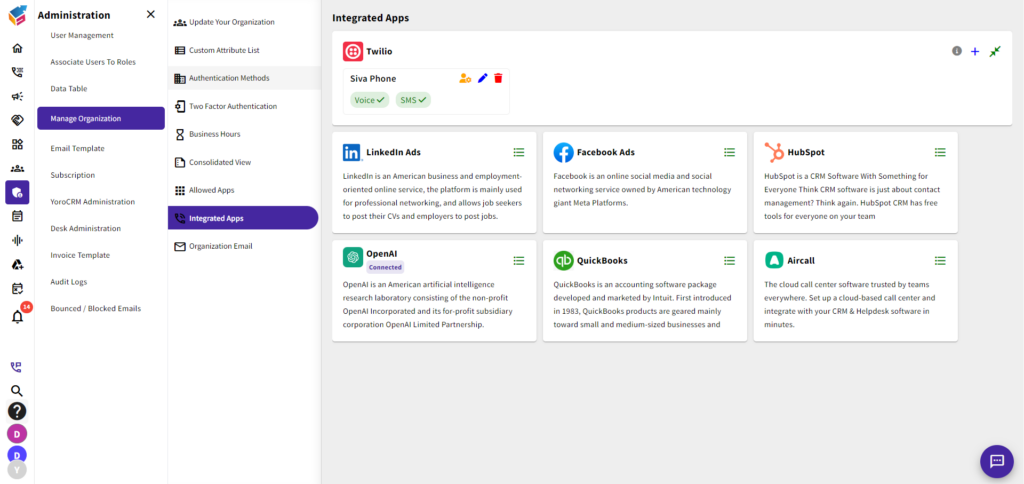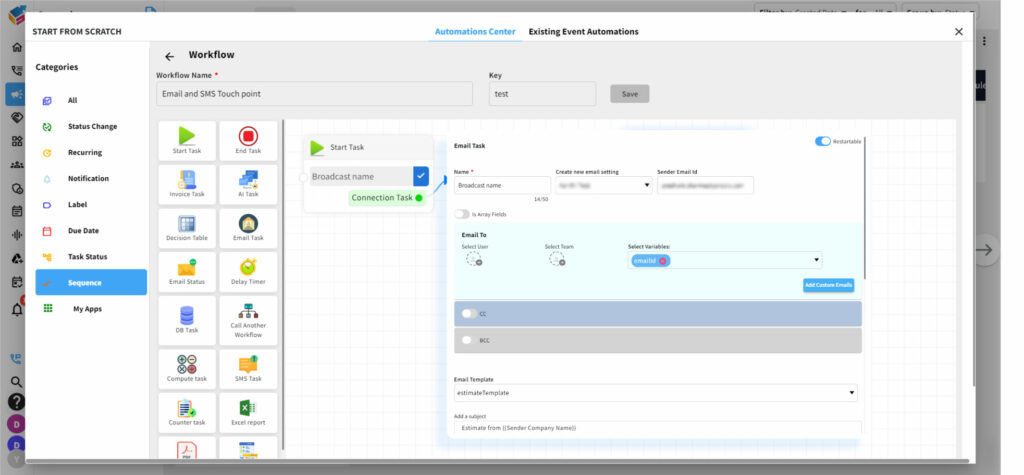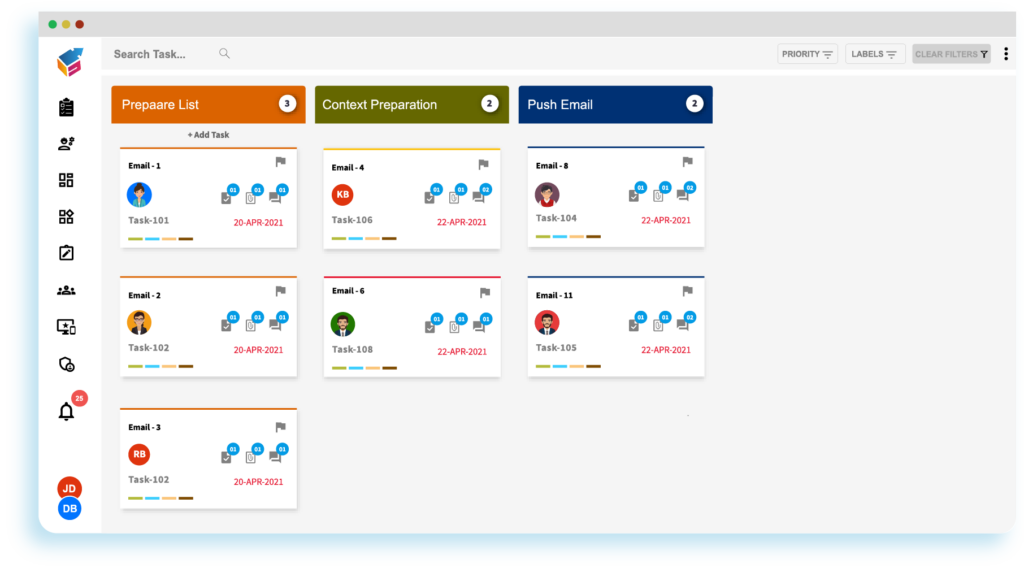Table of Contents
In the ever-evolving realm of digital marketing, the selection of appropriate email marketing tools plays a pivotal role in determining the triumph of your campaigns. The process of choosing the perfect email marketing platform requires a meticulous evaluation of several critical factors, ranging from the array of features and automation capabilities to the seamless integration with Customer Relationship Management (CRM) software. This comprehensive guide aims to serve as your navigational companion through the intricate landscape of email marketing tools, providing insights into the fundamental elements that demand thoughtful consideration.
The success of your email campaigns hinges on more than just the content you create. It’s about the tools you leverage to streamline, personalize, and optimize the entire process. Features such as robust automation not only save time but also enhance the precision and relevance of your communication. Integration with CRM software ensures a synchronized approach, allowing you to align your email marketing efforts with the broader customer relationship strategy.
As we delve into the core aspects of email marketing tools, you’ll gain a deeper understanding of their functionalities and learn how to make informed decisions. By the end of this guide, you’ll be empowered to choose an email marketing platform that not only meets your immediate needs but also positions your strategies for long-term success in the dynamic digital marketing landscape.
Benefits of Email Marketing Tools
Email marketing tools offer a range of benefits for businesses seeking to enhance their digital marketing efforts. Here are key advantages:
- Increased Reach: Email marketing tools enable businesses to reach a large audience quickly and cost-effectively, allowing for efficient communication with both existing and potential customers.
- Targeted Communication: These tools allow for segmentation and targeting based on customer characteristics and behaviour, ensuring that messages are relevant and personalized.
- Automation and Efficiency: Email marketing tools automate various aspects of the email campaign process, including sending scheduled emails, drip campaigns, and follow-ups, saving time and improving efficiency.
- Analytics and Insights: Robust analytics provided by these tools offer valuable insights into campaign performance, allowing businesses to measure open rates, click-through rates, and other key metrics to refine their strategies.
- Improved Engagement: Personalized and well-timed emails facilitated by these tools enhance customer engagement, fostering stronger relationships and increasing the likelihood of conversions.
- Cost-Effective Marketing: Compared to traditional marketing channels, email marketing is a cost-effective solution. Email marketing tools further optimize budget utilization with features like automation and targeted messaging.
- Brand Consistency: Email templates and design features in these tools ensure brand consistency across all communications, reinforcing brand identity and credibility.
- Integration with CRM: Many email marketing tools seamlessly integrate with Customer Relationship Management (CRM) systems, ensuring a unified approach to customer interactions and data management.

- A/B Testing Capabilities: Businesses can experiment with different email elements through A/B testing, refining their strategies based on real-time feedback to maximize campaign effectiveness.
- Responsive Design: With mobile optimization features, email marketing tools ensure that emails are well-presented and accessible on various devices, catering to the diverse preferences of today’s consumers.
- Compliance and Security: These tools often incorporate features to help businesses adhere to email marketing regulations and ensure the security of customer data, building trust with subscribers.
- Lead Nurturing: Email marketing tools support lead nurturing through drip campaigns, allowing businesses to guide leads through the sales funnel with targeted and timely content.
By leveraging the benefits of email marketing tools, businesses can create more impactful and efficient marketing campaigns, ultimately contributing to increased customer engagement, brand loyalty, and overall business success.
Understanding the Importance of Email Marketing Tools
Email marketing remains a cornerstone of effective digital communication, allowing businesses to reach and engage their audience directly. However, the key to success lies in the tools you choose to execute your email marketing campaigns. A robust email marketing tool should empower you to create, manage, and optimize campaigns efficiently.
Features to Look for in an Email Marketing Tool
Email Automation:
Automation is a game-changer in email marketing. Look for tools that offer robust email automation capabilities, enabling you to set up drip campaigns, trigger emails based on customer actions, and streamline your communication process.

CRM Integration:
Seamless integration with Customer Relationship Management (CRM) software is crucial for a unified view of your customer data. Choose email marketing tools that easily integrate with popular CRM platforms to ensure a synchronized approach to customer interactions.
Drag and Drop Builder:
A user-friendly interface is essential for creating visually appealing and effective email campaigns. A drag and drop builder simplify the design process, allowing you to create engaging content without the need for advanced technical skills.
Customer Journey Mapping:
Consider tools that facilitate customer journey mapping. Understanding how your audience interacts with your emails at different stages of the customer journey allows for targeted and personalized communication.
Email Templates:
Efficient tools offer a library of customizable email templates. These templates save time, maintain brand consistency, and provide a starting point for various types of email campaigns.

Assessing Your Business Needs
Scalability:
Evaluate the scalability of the email marketing tool. Ensure that it can accommodate the growth of your subscriber list and the increasing complexity of your campaigns.
Budget Considerations:
Different tools come with varying pricing structures. Consider your budget and choose a tool that aligns with your financial resources while providing the features necessary for your business goals.
Industry-Specific Requirements:
Some industries may have specific compliance and security requirements. Ensure that the chosen tool meets these standards to protect sensitive customer data and adhere to industry regulations.
Implementation and Optimization
Onboarding and Training:
Consider the onboarding process and available training resources. A tool with a supportive onboarding experience and educational materials will contribute to a smoother transition.
Data Analytics and Reporting:
Analytics are crucial for measuring the success of your campaigns. Look for tools that provide comprehensive data analytics and reporting features to track key metrics and optimize your strategies.
Customer Support:
Responsive customer support is essential, especially if you encounter technical issues or have questions about maximizing the tool’s features. Choose a provider with excellent customer support to ensure you receive timely assistance.
Conclusion
In conclusion, selecting the ideal email marketing tool is a pivotal decision that can shape the effectiveness of your campaigns and the overall success of your digital marketing efforts. By considering the features, assessing your business needs, and exploring popular email marketing services, you can make an informed choice that aligns with your objectives.
Empower your business with the right email marketing tools, harnessing the capabilities of automation, CRM integration, and user-friendly interfaces. Remember, the chosen tool should not only meet your current requirements but also have the flexibility to adapt to your business’s future growth and evolving marketing needs. With the right tools in place, you’ll be well-equipped to create, manage, and optimize impactful email marketing campaigns that resonate with your audience throughout their customer journey.




